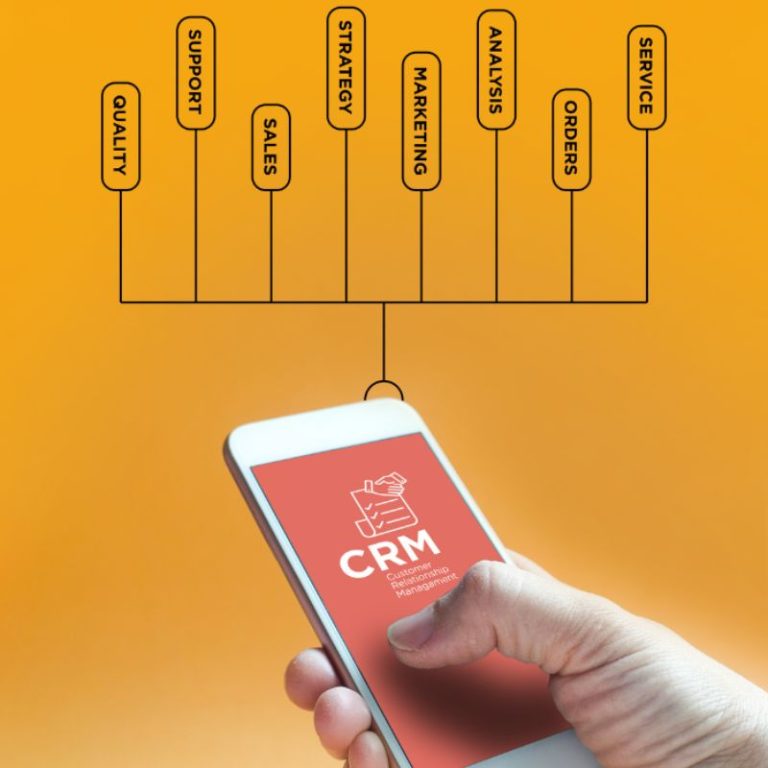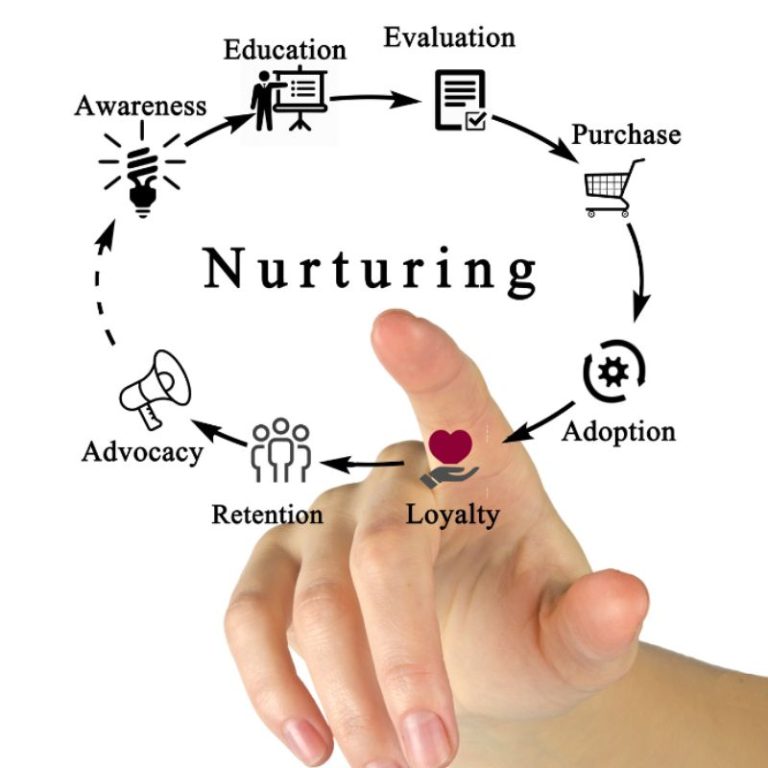Nurturing prospect relationships until they are ready to buy is a delicate art, balancing persistence with patience, and information with insight. In today’s fast-paced market, this nurturing process is more crucial than ever, serving as the bridge between initial interest and final purchase. Understanding how to effectively guide prospects through this journey can dramatically impact your business’s bottom line.
The challenge lies not just in capturing attention, but in maintaining it—transforming fleeting interest into lasting engagement. This requires a nuanced approach, one that resonates with the unique needs and timelines of each prospect.
In this article, you will learn:
– Effective strategies to engage and nurture prospects.
– How to personalise your communication for better connection.
– Metrics and tools to track the nurturing process efficiently.
With these insights, you’ll be better equipped to build meaningful relationships that not only endure but thrive, paving the way for successful conversions. Let’s dive into the strategies that can make this possible.
The Importance of Relationship Nurturing in Sales

In the realm of sales, the significance of nurturing relationships cannot be overstated. It’s a strategic process that goes beyond mere transactions, aiming to build a foundation of trust and credibility with prospects. This foundation is crucial because it transforms the sales journey into a consultative partnership rather than a one-sided pitch.
By prioritising relationship nurturing, businesses can differentiate themselves in a crowded market, ensuring they’re top of mind when prospects are ready to make a decision.
Building Trust and Credibility
Trust and credibility are the cornerstones of any successful sales relationship. They are developed over time, through consistent and meaningful engagement. When prospects trust a brand, they’re more likely to invest their time and resources in it. Credibility, on the other hand, is established by demonstrating expertise and understanding of the prospect’s needs and challenges. This can be achieved through tailored content, insightful advice, and a genuine interest in providing solutions that matter.
The Consultative Approach
A consultative sales approach is key to effective relationship nurturing. This means shifting the focus from selling products or services to solving the prospect’s problems. It involves active listening, asking the right questions, and providing personalised recommendations. By adopting this approach, sales professionals can create a more engaging and less invasive buying experience for the prospect.
The Role of Empathy
Empathy plays a crucial role in nurturing prospect relationships. Understanding and acknowledging the challenges, pressures, and goals that prospects face helps in building a deeper connection. It allows sales professionals to tailor their communication and solutions in a way that resonates personally with each prospect.
Engaging Prospects at Every Stage
The sales funnel is not a linear process; prospects may move back and forth between stages before they’re ready to buy. Effective nurturing involves engaging with them at every stage, providing relevant information and support that moves them closer to a decision. This could mean sharing educational content in the awareness stage, offering detailed comparisons in the consideration stage, or providing testimonials and case studies in the decision stage.
Nurturing prospect relationships is an ongoing effort that requires patience, persistence, and a deep understanding of the prospect’s journey. By focusing on building trust, adopting a consultative approach, and engaging empathetically, sales professionals can create a nurturing environment that not only accelerates the sales process but also fosters long-term loyalty.
Understanding Your Prospects

The key to nurturing relationships until they’re ready to buy is understanding who your prospects are. This goes beyond basic demographics to grasp their behaviours, needs, challenges, and motivations. By delving deep into these aspects, you can tailor your communication and offers to meet their specific requirements, thereby increasing the likelihood of conversion.
Identifying Needs and Behaviours
Start by gathering data on your prospects through surveys, social media interactions, website analytics, and direct conversations. This information will help you identify common questions, concerns, and the types of content they engage with most. Recognising these patterns enables you to create more targeted and effective nurturing campaigns.
Segmenting Your Audience
Once you’ve identified your prospects’ needs and behaviours, the next step is segmentation. This involves dividing your audience into smaller, more homogenous groups based on shared characteristics or interests. Segmentation allows for more personalised marketing efforts, which can significantly improve the effectiveness of your nurturing process. For instance, a segment interested in a specific product feature might receive detailed content about that feature, while another segment at a different stage of the buyer’s journey might get more general information about the benefits of your product.
Personalising Your Approach
Personalisation is crucial in today’s marketing landscape. Prospects expect brands to understand their individual needs and offer solutions that cater specifically to them. This can be achieved through personalised emails, tailored content recommendations, and engaging in meaningful conversations on social media platforms. The goal is to make each prospect feel valued and understood, thereby fostering a stronger connection and moving them closer to a purchasing decision.
Leveraging CRM Tools
To effectively personalise your approach, leveraging Customer Relationship Management (CRM) tools is essential. These tools can help you track interactions with each prospect, enabling you to deliver timely and relevant content. They also provide insights into the prospect’s behaviour and preferences, which can be used to refine your nurturing strategies further.
Engaging Content is Key
At the heart of understanding and nurturing your prospects. Whether it’s informative blog posts, engaging videos, or insightful infographics, your content should address the specific needs and interests of each segment. By consistently delivering valuable content, you establish your brand as a trusted resource, making prospects more likely to turn to you when they’re ready to make a purchase.
Understanding your prospects is not a one-time task but an ongoing effort that evolves as your audience and market dynamics change. By staying attuned to your prospects’ needs and behaviours, segmenting your audience effectively, and personalising your approach, you can build stronger relationships that ultimately lead to more sales.
Strategies to Nurture Prospects

Nurturing prospect relationships requires a multifaceted approach, combining various strategies to engage, educate, and convince prospects over time. Here, we delve into some of the most effective tactics that can be utilised to maintain interest and build a connection until the prospect is ready to buy.
Email Marketing Campaigns
Email remains one of the most powerful tools for nurturing leads. Through targeted email campaigns, you can deliver personalised content directly to your prospects. These emails should offer value, whether through educational content, exclusive offers, or insights into industry trends. The key is consistency and personalisation; regular touchpoints keep your brand top of mind, while personalised content makes each prospect feel understood and valued.
Content Marketing
Content marketing plays a pivotal role in the nurturing process. By creating and distributing valuable content, you establish your brand as an authority in your field. This content can take many forms, including blog posts, whitepapers, case studies, and videos. It should address common questions and challenges your prospects face, guiding them towards solutions and showcasing your expertise.
Social Media Engagement
Social media platforms offer a unique opportunity to engage with prospects more informally and interactively. By sharing content, responding to comments, and participating in industry conversations, you can build a community around your brand. This engagement fosters trust and keeps your brand at the forefront of prospects’ minds.
Personalised Follow-Ups
Personalisation is crucial in all aspects of prospect nurturing, but it’s especially important in follow-ups. Whether following up after a webinar, a download, or a sales call, tailor your communication to reflect the prospect’s specific interests and interactions with your brand. This attention to detail demonstrates your commitment to meeting their needs and can significantly impact their readiness to buy.
Leveraging Automation and CRM

While personalisation is key, efficiency is also critical in nurturing relationships at scale. Automation tools and CRM platforms can help manage and streamline the nurturing process. Automated email sequences can be triggered based on specific actions taken by prospects, ensuring timely and relevant follow-ups. Meanwhile, CRM systems provide valuable insights into prospect behaviour and preferences, enabling more targeted and effective nurturing strategies.
Continuous Learning and Adaptation
The landscape of prospect nurturing is ever-evolving, with new tools, platforms, and strategies emerging regularly. Staying informed and adaptable ensures that your nurturing efforts remain effective and resonate with your audience. Regularly analyse the performance of your campaigns, seeking feedback and adjusting your approach as necessary to improve engagement and conversion rates.
By employing these strategies, you can nurture prospect relationships effectively, guiding them through the buyer’s journey with a mix of personalised communication, valuable content, and strategic follow-ups. The goal is to build a strong, trusting relationship that culminates in a decision to buy when the time is right.
Customising Your Communication

Personalisation goes beyond addressing prospects by their first name in emails. It involves customising your communication based on their behaviour, preferences, and stage in the buyer’s journey. This could mean sending targeted emails that address their specific pain points, offering solutions tailored to their business size or industry, or providing content that matches their interests and previous engagements with your brand.
Using Data to Inform Personalisation
Leveraging data is crucial in personalising your nurturing strategy. Analysing interactions, such as email opens, website visits, and content downloads, can provide insights into what your prospects care about. CRM tools play a vital role here, allowing you to segment your audience based on this data and deliver highly targeted messages that resonate with each segment.
Examples of Personalised Outreach
Effective personalised outreach can take many forms. For a prospect who frequently visits your product pages, a personalised email offering a demo or free trial can be very effective. For another who engages with educational content, sending an advanced guide or inviting them to an exclusive webinar can nurture the relationship further. The key is to make each prospect feel like your communication is crafted specifically for them.
The Impact of Personalisation on Conversion Rates
The impact of personalisation on conversion rates cannot be overstated. Personalised emails deliver six times higher transaction rates, and targeted content can significantly increase engagement. By making prospects feel understood and valued, personalisation not only accelerates the nurturing process but also fosters loyalty, turning prospects into advocates for your brand.
Challenges and Considerations
While personalisation is powerful, it’s important to balance it with privacy concerns. Ensure you’re transparent about how you collect and use data, and provide options for prospects to control their information. Additionally, personalisation requires a commitment to continuously collecting and analysing data to refine and adjust your strategies over time.
In conclusion, personalising your approach to prospect nurturing is a game-changer. By leveraging data to customise your communication and content, you can create a more engaging and effective nurturing process that significantly improves your chances of conversion.
CRM Platforms: The Heart of Personalised Nurturing

CRM platforms like Popcorn CRM are indispensable for managing prospect information and interactions. They allow you to segment your audience based on various criteria, including behaviour, demographics, and engagement level. This segmentation enables highly targeted communication strategies. Moreover, Popcorn CRM offers insights into the effectiveness of your nurturing efforts, allowing you to refine your approach based on real-time data.
Integrating CRM with Other Tools
For maximum efficiency, integrate your CRM platform with other marketing tools, such as email marketing software and social media platforms. This integration provides a unified view of each prospect’s interactions with your brand, enabling you to tailor your nurturing efforts more effectively. Additionally, it facilitates a seamless transition of leads between marketing and sales teams, ensuring that prospects receive the right attention at the right time. Popcorn CRM comes with a built-in email marketing platform. This means you can seamlessly send communications to a segmented section of your database or an individual, it also has built in tracking so you can establish what the reader did next.
Tools and Metrics to Track the Nurturing Process
Tracking and analysing the right metrics is crucial to understanding the effectiveness of your nurturing strategies. Key performance indicators (KPIs) such as open rates, click-through rates, conversion rates, and time to conversion can offer valuable insights. Technology enables you to monitor these metrics closely, providing a clear picture of what works and what needs adjustment.
Conclusion
Leveraging technology in nurturing prospect relationships is not just a convenience; it’s a necessity in the modern sales landscape. Automation and CRM platforms not only streamline the nurturing process but also enhance the personalisation and effectiveness of your efforts. By embracing these tools, you can ensure that your prospects are engaged and informed at every stage of their journey, significantly increasing the likelihood of conversion.
Ready to nurture your prospect relationships the right way? Try Popcorn CRM today and see how it can revolutionise your approach to prospect relationships.
Click here to discover more and take your first step towards seamless, effective nurturing of your prospects. Let Popcorn CRM be your partner in prospect relationship success!










